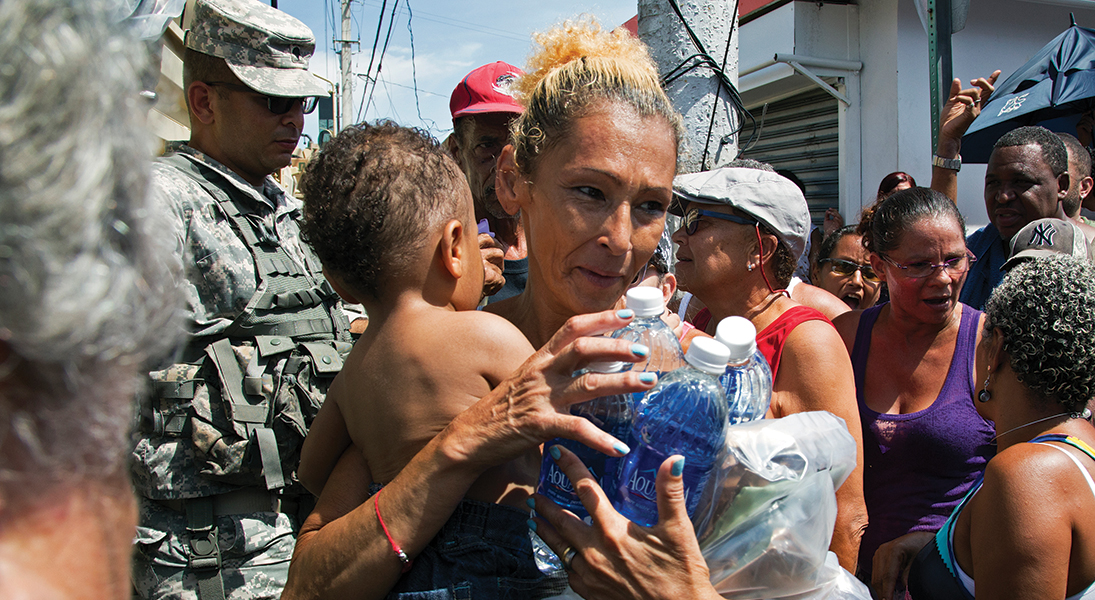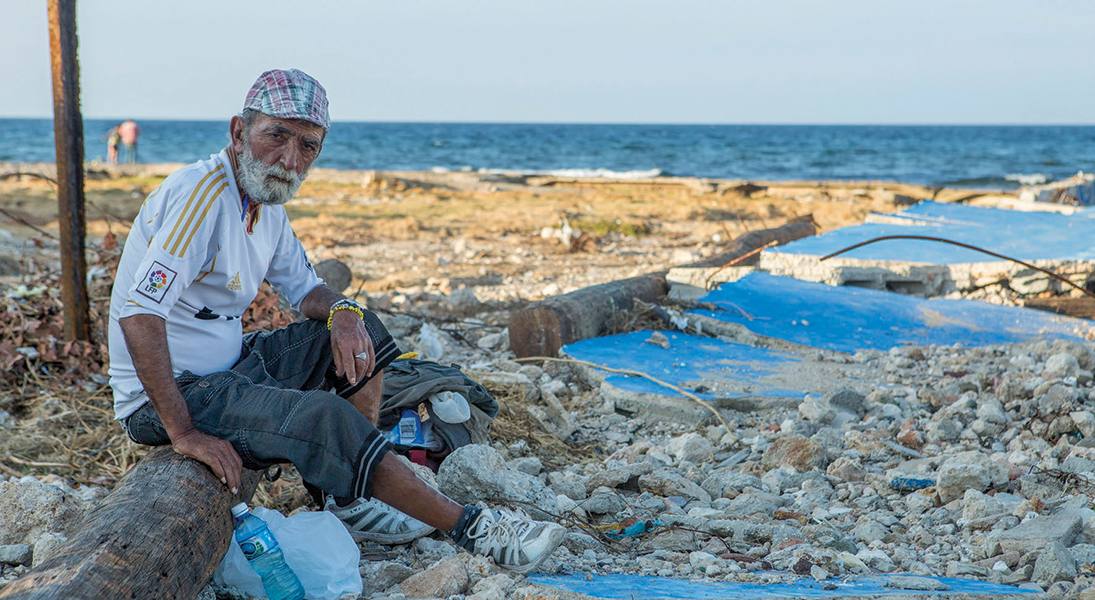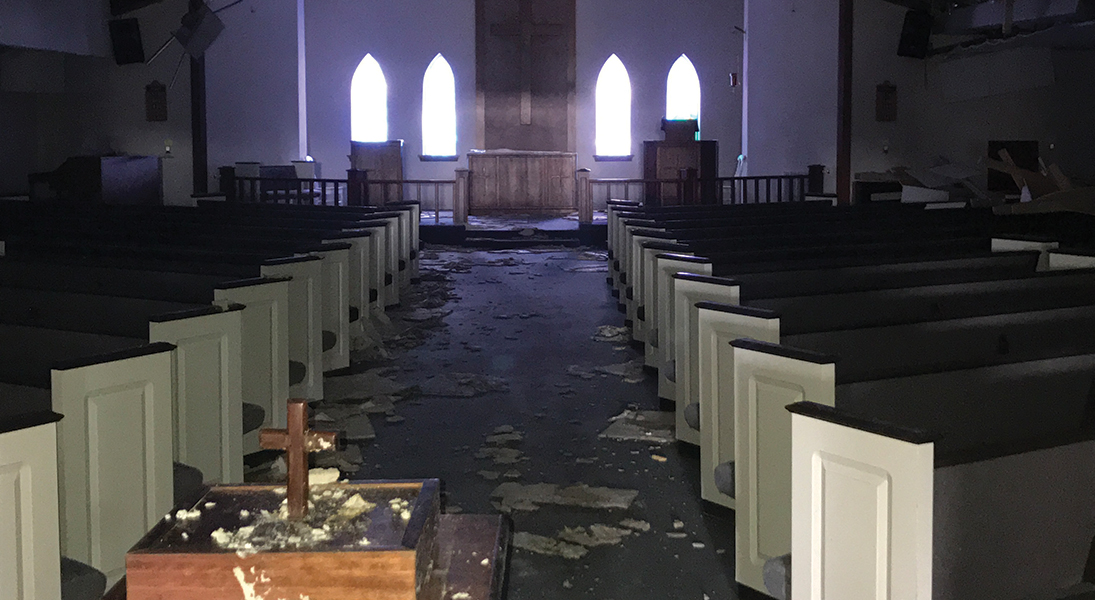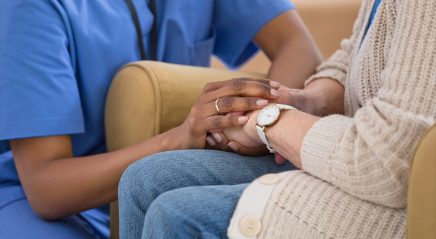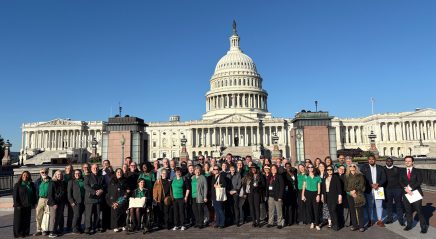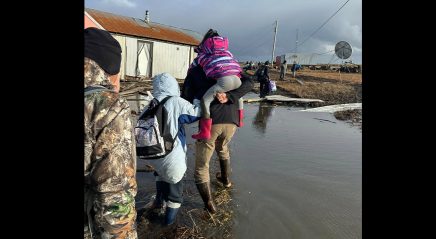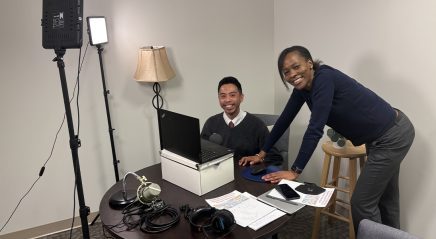Sam Sipes, CEO of Lutheran Services Florida, was reporting on the Hurricane Irma recovery work his organization was doing across the state when he shared a sentiment often expressed among Lutherans. “We need resources here, but Puerto Rico and the Virgin Islands have been much harder hit,” he said to Lutheran Disaster Response (LDR) staff during a Sept. 29 call.
We may be hurting, he was saying, but we’re aware of others’ hurt too.
Yet the response of Joseph Chu, LDR associate program director, was indicative of how Lutherans are working together toward disaster recovery, even in the midst of widespread devastation: “We don’t forget Florida.” There may be damage in many areas, but the ELCA doesn’t plan to lose sight of any of them.
The exchange illustrated the difficulty in assessing and responding to the destruction caused by a quick succession of powerful hurricanes—Harvey, Irma and Maria—in regions that have often seen previous significant storm damage.
Harvey hit the Gulf Coast on Aug. 26, causing catastrophic flooding. The storm was the first major hurricane to make landfall in the country in 12 years. At presstime, 82 deaths were attributed to Harvey.
Just as Harvey recovery efforts began in Texas and Louisiana, Irma made landfall in the Caribbean on Sept. 6, affecting millions. On Sept. 10, Irma reached the U.S. mainland, ripping through Florida. At presstime, 75 deaths were attributed to this storm.
Less than two weeks after Irma rocked the Caribbean and the Atlantic Coast, Hurricane Maria tore through a similar path. Many small Caribbean islands were hit a second time, causing additional extensive damage.
Puerto Rico’s power system was largely destroyed, likely leaving millions without electricity for months. At presstime, the storm had contributed to 38 deaths across the Caribbean and 16 deaths in Puerto Rico. More than half of Puerto Ricans were without access to drinking water.
But even before the storms hit, the ELCA and its partners were mobilized and on the ground, collaborating with community leaders and officials to initiate responses, particularly through long-term recovery efforts.
Adversity, generosity and gratitude
As the storms began, bishops ensured communication with their congregations. Lutheran Social Service agencies activated their networks. And LDR stayed in close touch with its local affiliates. Since then, LDR staff have visited areas impacted by the hurricanes. They are receiving regular updates from partners and devising strategies for the best ways to respond. Synod staff are working together to coordinate cross-congregational relief and recovery efforts.
Donation response from ELCA members has been “amazingly gracious,” said Daniel Rift, director of ELCA World Hunger and disaster appeal. “One hundred percent of what comes in to us goes out into the field. This is a critical moment, and people are really rising to the occasion.”
ELCA leaders report feeling overwhelmed at both the destruction and the generosity they’ve seen. “We still have a long way to go, but things are moving forward,” said Ray Tiemann, bishop of the Southwestern Texas Synod. “[Congregations] have appreciated all the support and prayers from across the church.”
Holy Cross Lutheran Church in Rockport, Texas, experienced significant wind and water damage. “When the hurricane hit, the steeple was blown off,” said Stan Post, congregation council president. “The interior of the church is essentially totaled.”
The congregation is now meeting in a temporary building. “Support from congregations in this synod and all around the church has been phenomenal. What a joy!” said George Haynes, pastor of Holy Cross.
Other rostered ministers, like Brad Otto, pastor of Messiah Lutheran Church in Cypress, Texas, have felt a similar mix of emotions. “Sometimes I cry because of the devastation I see, but sometimes I cry because of the help that comes,” he said.
Consistently, gratitude is the feeling most commonly conveyed. “We are grateful to God for strengthening and sustaining all our congregations,” said Marcus Lohrmann, interim bishop of the Florida-Bahamas Synod. “The impact of no power and no clean water in some areas resulted in an outpouring of community support and collaboration between individuals and congregations.”
“Support from congregations in this synod and all around the church has been phenomenal. What a joy!” — George Haynes, pastor of Holy Cross
Lutherans are now faced with the difficult task of determining how to respond to a changing mission field in what may be a new normal of severe weather.
“These weather events present a degree of complexity and scale that is unprecedented,” said Elizabeth Eaton, ELCA presiding bishop. “The professionalism, experience and compassion [of disaster-response staff] is remarkable. But even more impressive is all of us coming together. We truly are ‘church together.’ ”
To help
Give by credit card at ELCA.org/ldr or by calling 800-638-3522.
Send checks payable to Lutheran Disaster Response (mark “Hurricane response” in the memo line) to Evangelical Lutheran Church in America, P.O. Box 1809 Merrifield, VA 22116-8009.



